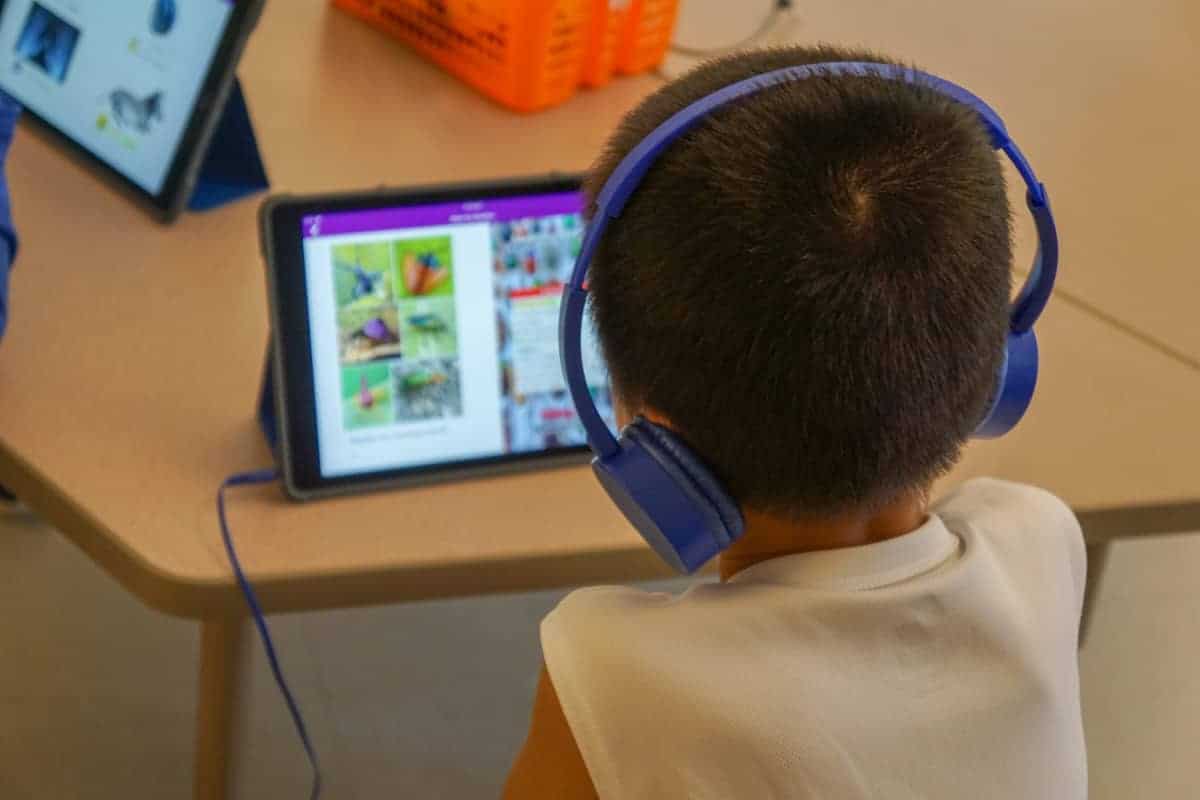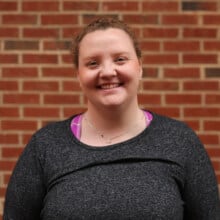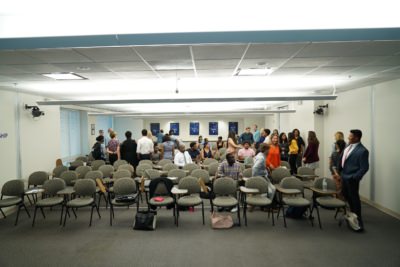Northside Elementary School in Chapel Hill is teeming with students, so at first it seems like a normal summer camp. Teachers can be heard saying, “Walk, please,” as their students scurry out to the playground, and those students laugh as they see who can climb the highest on the jungle gym. But if you were to walk down the hallway, you would quickly realize that something is different: at this camp, you could be hearing at least 15 languages spoken at any given moment.
These students are learning English from passionate teachers such as Asia Sharif-Clark, who highlighted the joy she finds in seeing her students’ confidence grow. “Watching students building confidence, going from speaking sometimes in a very shy voice with their hands covering their face, to watching them just confidently say, ‘Happy Thursday!’” she said. “Knowing some of the things we say, watching them feel confident when they express themselves, I think that’s the best part.”
Lasting from July 9th to August 3rd and now in its fourth year, the English Learners’ Camp has six teachers, a multitude of volunteers, and 84 students whose needs are the driving force behind every vocabulary word and phonetics lesson. There are also camps for middle school English learners at Culbreth Middle School and high school students at Carrboro High School. Karen, Spanish, Arabic, and Chinese are the most commonly spoken languages among students at the camp.
Helen Atkins, ESL Coordinator for Chapel Hill-Carrboro City Schools, explained that they use a different theme each summer to make the academic content engaging and fun for the students. This year’s theme is endangered animals, providing plenty of learning opportunities.
“We focus on a lot of literacy skills, phonics, emerging reader-type activities, so they’re pulling in activities with social studies, with math, with science,” Atkins said. “The idea is that we want to integrate content with vocabulary.”
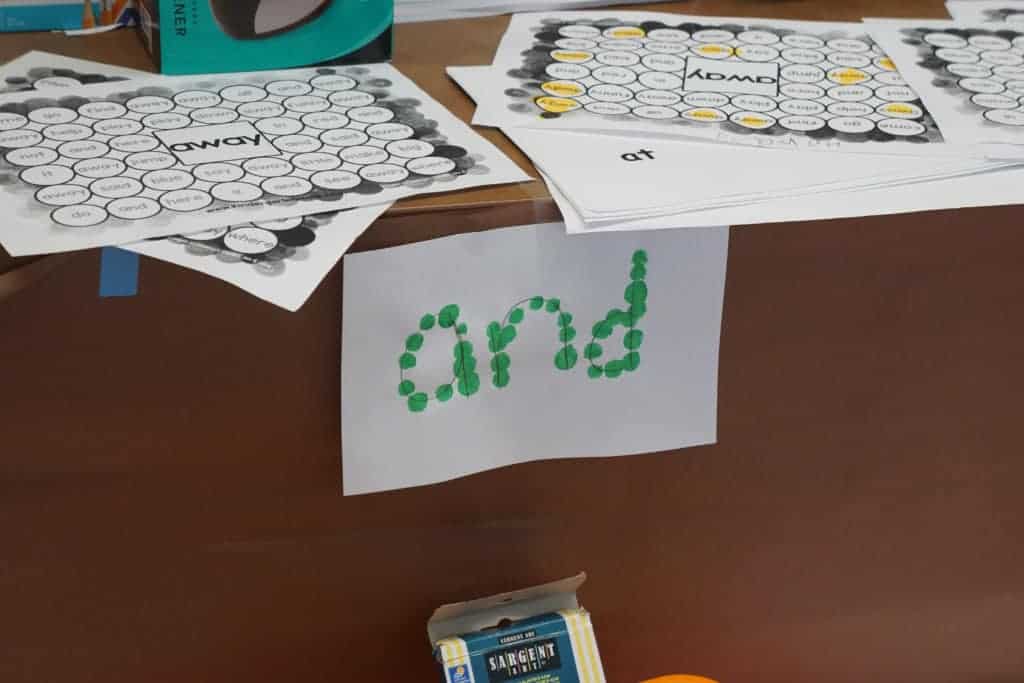

Improving English skills is not the only goal, however. There’s also a large emphasis on making the students, all newcomers to the United States, feel welcomed and comfortable in the American school atmosphere.
Students range from those who arrived in late spring 2018, to those who have only been here for a few weeks. According to the Department of Public Instruction (DPI), approximately 17 percent of the state’s total student population speaks a primary language other than English at home, and approximately seven percent of the student population have limited proficiency in English. All of the campers at Northside Elementary are considered newcomers to the country.
“Some of the primary goals for those students,” Atkins explained, “is learning how to go through the cafeteria line, learning how to give your lunch number, learning about the bells, or about different drills or what have you during the day.”
While introducing them to American school routines, the program also uses a multitude of different techniques to build the students’ trust in their own language stills, including visuals and hand gestures. Whether it’s watching videos, using images, or simply observing everything around them, Sharif-Clark said, “There’s a lot of things you can incorporate so that you’re supporting their beginning journey to learning English.”
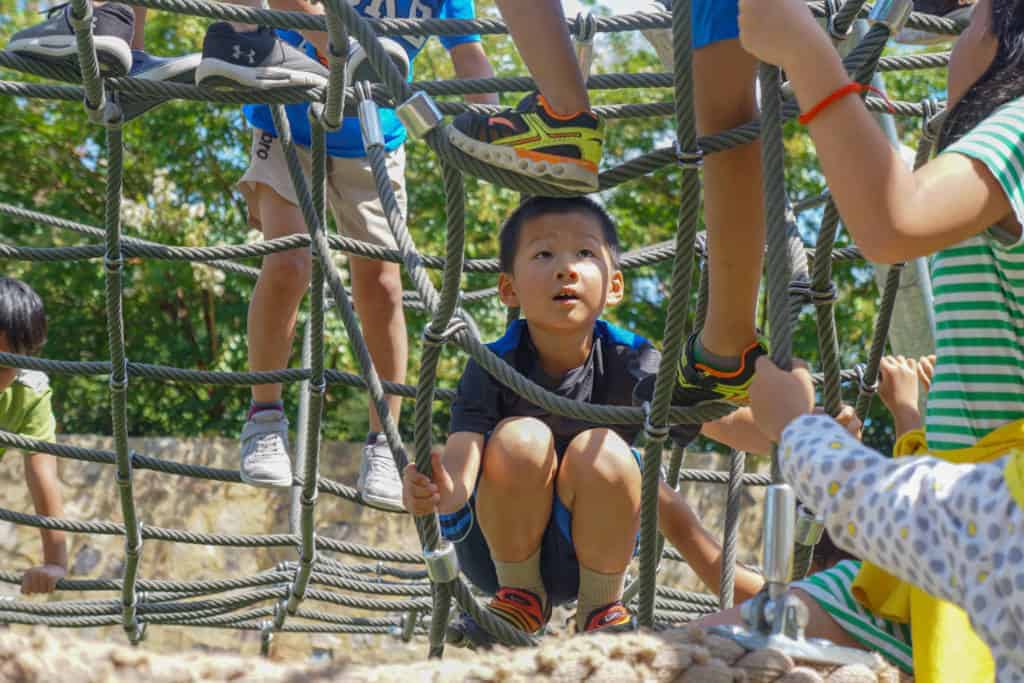

The challenge is that this journey is different for every student, said Diana Ciro, a teacher in her third year with the program who comes from another district specifically for this camp. In her first year, she had twelve different countries represented at one point in her classroom. Regardless of where they’re from, however, Ciro said, “They want to play. They want to make friends.”
While each student’s first steps to literacy may vary, Atkins said there are several things they look at for prospective campers before they enter the program, including how long they’ve been in the country and what their English language proficiency is like. “We would love to include every single English learner in the district,” she added, “but the reality is we don’t have the funds for that, so our focus is on students that are new to the country and whose English language proficiency is still emerging.”
The funding comes from state funds for at-risk students and allows for busing to and from Northside Elementary as well as meals for students. As an entirely free program for those attending, Atkins emphasized that it’s a community effort. They work with local nonprofits to ensure they have healthy meals as well as feeding locations throughout the various communities in Chapel Hill and Carrboro.
In order to ensure families and communities are aware of the opportunities, Atkins says the district interpreters are their secret weapon. They don’t interpret for the students in the camp but work instead to create a smooth process for parents registering and adjusting to the school system. By utilizing the close community relationships, the interpreters are able to disseminate news extremely quickly so parents know what’s going on.
“[The interpreters] have wonderful relationships with the community,” Atkins said, “so it’s very fortunate that we’re close knit and can reach people that way. It really is a community effort. It’s a lot of work, but it’s exciting.”
The hardest part, Atkins continued, is the logistics at the beginning of the summer. “Especially if they’re new to the district, and especially because their English skills limit what they can communicate to us, it’s a big leap of faith for families.”
To alleviate some of this stress, this year the camp introduced an open house before the first day. “We were able to make sure to say to Mom, ‘Here’s your bus number, here’s your bus stop,’ so that parents could feel comfortable,” Atkins said.
While the beginning of the program might be the most difficult, for Atkins the most rewarding part comes at the end, when they hold a culminating event to show families what their students have been learning. “This year,” she said, “we’re talking about maybe an author share and the students are the authors, or it could also be something visual.”
The first year, after receiving only a few RSVPs, Atkins said they decided to have ice cream sundaes for students to make with their families, expecting maybe fifty or sixty people. “We ran out of ice cream in the first twenty minutes,” she laughed, “and I had to send people to buy more because we had so many people. The parents were really excited and really showed up, so it was wonderful and we’ve done it ever since.”
This excitement seems to pervade everyone involved, from the students and parents to the teachers and administrators. Ciro smiled as she watched her students on the playground. “They give you that smile, and they understand something,” she said, before gathering them together to return to their classroom.
